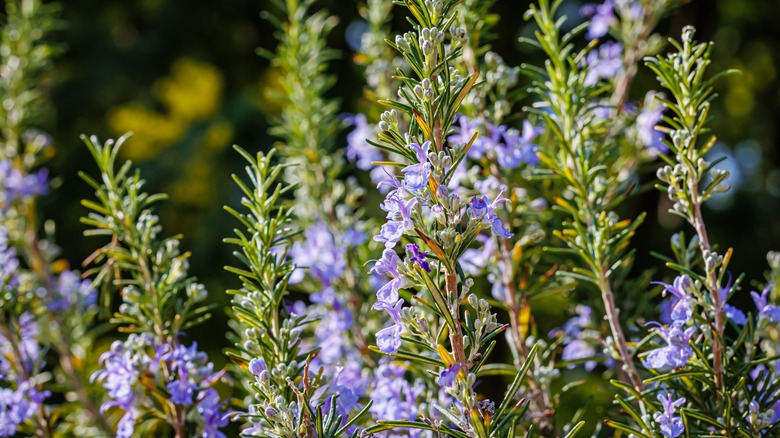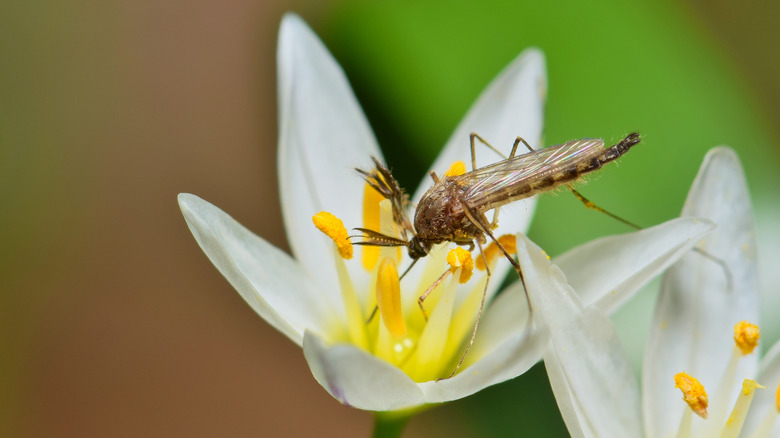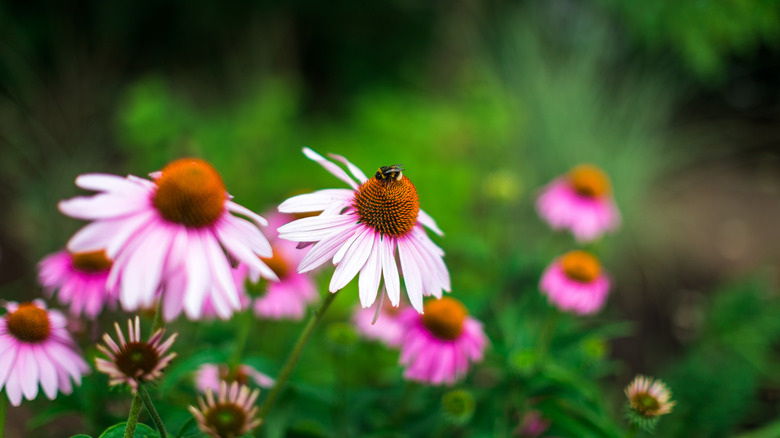Why You Should Plant Rosemary Near Your Garden Gate
When you think of a thriving garden, you likely envision lush green plants, vibrant flowers, and the sweet hum of bees. While it's something we all strive for, it can easily go astray when pests invade your garden and feed on your plants. While chemical pesticides work, many homeowners prefer to seek natural alternatives, and that's where rosemary comes in handy. The fragrant herb has pest-repelling properties, so planting it at your garden entrance can help keep them away from your garden and even your home.
In general, rosemary is a relatively easy plant to grow, but there are a few key things to keep in mind. To care for your rosemary herb plant, remember that it thrives in full sun, needing at least six hours of direct sunlight per day. It prefers well-draining soil that is slightly acidic, and you can use a commercial potting mix for herbs. Water your rosemary plant deeply when the soil feels dry to the touch, but avoid overwatering, as this can lead to root rot.
How rosemary repels pests
Rosemary has a naturally strong aroma thanks to essential oils found in its leaves, which contain geraniol, linalool, sineol, and burneol. Many insects find these unpleasant at best. As a result, rosemary can act as a repellent for certain pests, including flies and mosquitoes. They also repel carrot flies and cabbage moths, which feed on and destroy various garden vegetables. Beyond keeping your veggies protected, the fact that rosemary repels mosquitos not only makes your yard more pleasant for you and your family but also helps prevent the annoying bugs from coming into your home.
The strong scent of rosemary disrupts the communication and navigation of invasive insects, making them less likely to go into and linger in your garden. It also can help mask the natural scent of plants and vegetation that pests seek to feed on so they won't be as motivated to make your garden a pit stop.
However, it's important to remember that the effectiveness varies depending on the pest and the severity of the infestation. While rosemary can be a deterrent, it likely can't obliterate heavy pest infestations in your garden. For targeted defense, consider planting it near specific plants prone to particular pests.
Rosemary is a great pollinator plant
Another reason why rosemary is an herb perfect for growing in your backyard garden is that it attracts beneficial insects. It is a strong pollinator plant and attracts a host of bee varieties, butterflies, and other flies that feed on nectar. This also plays an important role in natural pest control by forcing pests to compete with the pollinators for resources. Predatory pollinators will also help keep pest populations in check, and a healthy and diverse garden naturally attracts beneficial bugs. All this creates an environment less susceptible to pest invasions.
Consider using rosemary as part of a strategic plan to create a strong barrier around your home. Other herbs that work as natural repellents for insects, and mosquitos in particular, include citronella, lemongrass, peppermint, and eucalyptus. You can also choose various types of plants such as chrysanthemums, marigolds, and petunias. In fact, mums repel a wide variety of troublesome pests, including ants, roaches, ticks, bed bugs, and spider mites. Marigolds deter mosquitoes and lice while petunias keep aphids and tomato worms away.


